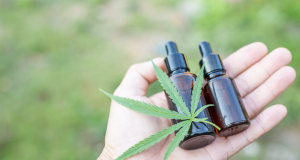In Malta, the measure has been welcomed by most, while condemned by the Nationalist Party, the conservative political party currently in opposition. A number of progressive entities have been calling for such a measure for years. In 2011, Daniel Holmes, a man from south Wales residing in Malta, was convicted for five years for possession and cultivation of cannabis, for personal use. The case had fuelled a debate over the country’s draconian drug laws and promoted protests for what many believed was a disproportionate punishment.
The move to legalise cannabis for personal use, is likely to lead to reform across Europe. Germany has already announced a move to establish a legal market. This was preceded by similar announcements from the governments of Switzerland, Luxembourg and the Netherlands, while Italy already has a referendum planned.
Prohibition has never worked
Meanwhile, Malta will be joining a growing number of countries implementing such measures. Canada, Mexico and 18 US states have already enacted similar legislations, and rival Democrat and Republican bills being debated in the Senate, with federal US legalisation being inches closer each day.
The arguments in favour of the legislation are similar across the globe. Cannabis prohibition does not work, and never has. It has never stopped anyone from consuming their preferred products, but just pushed to obtain them from illegal and unsafe sources.
The legislation aims to reduce cannabis trafficking
Malta’s PM Abela has reiterated that under the reformed law, cannabis trafficking will remain illegal. “We are legislating to address a problem, with a harm reduction approach by regulating the sector so that people don’t have to resort to the black market,” he argued in parliament last month.”
Anyone caught violating the new law will still be fined up to €100 if caught in possession of between 7 and 28 grams of cannabis. The penalty increases to €235 for those who consume the substance in public, and between €300 and €500 if they consume it in the presence of children.
Indoor cannabis use across the US
Meanwhile, a new study published in the American Journal of Preventive Medicine, discusses laws related to indoor cannabis use across the US. Titled, “Emerging Indoor Air Laws for Onsite Cannabis Consumption Businesses in the US,” the study said that over 50 localities across the States allow now allow indoor cannabis smoking at certain businesses, exposing customers and employees to secondhand cannabis smoke (SHCS).
The research team found a wide variation in how state and local governments address SHCS exposure. All of the 11 states that have legalized adult-use cannabis as of June 2020 prohibit consumption in public places, but six states (Alaska, California, Colorado, Illinois, Massachusetts, and Michigan) allow onsite consumption in licensed cannabis businesses subject to local government approval. While Massachusetts only allows onsite consumption through vaporization or other non-combustible methods.
“The majority of the localities that allow onsite cannabis consumption do not explicitly prohibit smoking or vaping inside. Policymakers should be made aware that ventilation and other engineering interventions cannot fully protect workers and patrons. Health authorities and local leaders should educate policymakers on the science of secondhand smoke remediation and advocate for the same standards for secondhand cannabis smoking and vaping that apply to tobacco, particularly because other modes of cannabis administration do not pollute the air,” concluded the study.












